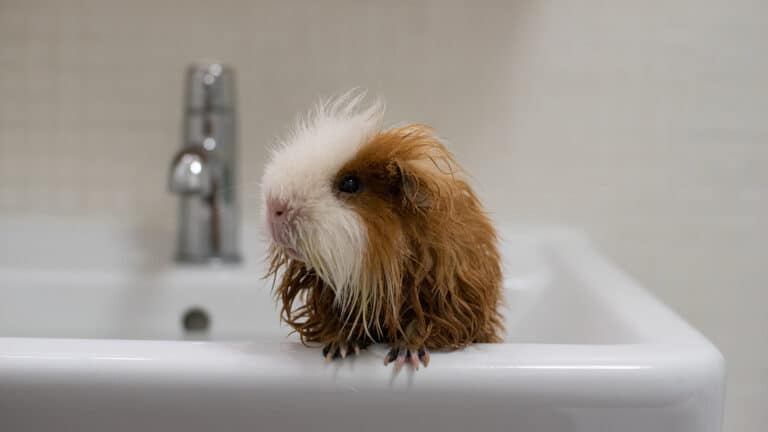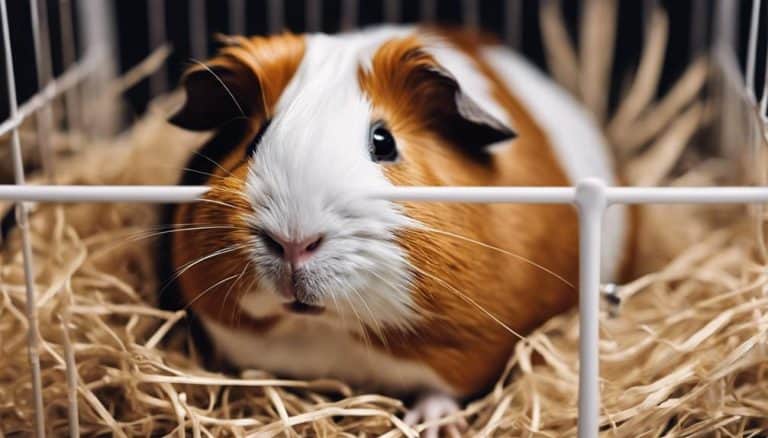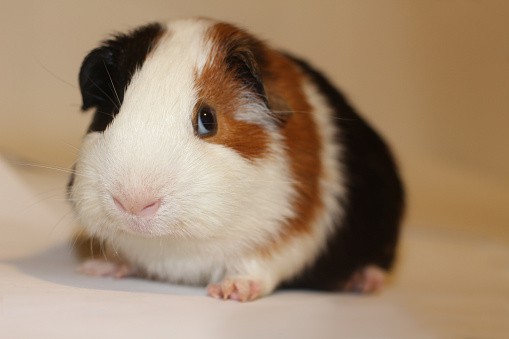Exploring the Possibility: Can You Bring Your Guinea Pig to College?
In the midst of preparing for the exciting journey that is college life, it’s common for incoming students to be flooded with questions about what they can and cannot bring along with them. While most are aware of the typical restrictions surrounding pets in dormitories or apartments, there remains a lingering curiosity amongst guinea pig owners: Can you bring your beloved furry companion to college?
In this article, we will delve into this intriguing possibility and explore the various factors at play when considering whether or not a guinea pig can join you on your educational adventure.
Whether you’re grappling with separation anxiety or simply seeking companionship, let us uncover the truth behind bringing a guinea pig to college and help you make an informed decision about sharing your residency halls with these adorable critters.
Housing Policies and Pet Restrictions: Understanding the rules and regulations regarding pets in college dormitories and apartments
Housing Policies and Pet Restrictions
When considering bringing a pet to college, it is essential to familiarize yourself with the housing policies and pet restrictions in dormitories and apartments. These rules and regulations vary depending on the institution, so it’s crucial to research your specific college or university’s guidelines beforehand.
Some colleges may allow small pets like guinea pigs in dormitories, while others may have a strict no-pets policy. It is important to understand that even if pets are allowed, there might be limitations on the number of animals you can bring or specific restrictions on certain types of pets.
Before making any decisions about bringing your guinea pig to college, contact your school’s housing office or refer to their official policies online. They will be able to provide you with accurate information regarding pet allowances, required documentation, fees (if applicable), and any additional requirements you need to meet before bringing your beloved pet along for the journey.

Researching Your College’s Policies
To ensure you fully understand your college’s policies regarding pets in campus housing:
- Check the official student handbook or code of conduct for any references to pets.
- Contact the housing office directly through phone or email.
- Ask current students who have experience living in campus housing whether they were allowed to bring their pets.
- Consult online forums or social media groups dedicated specifically to students at your college for insight from other pet owners.
By doing thorough research and understanding these policies upfront, you can make an informed decision about whether bringing your guinea pig with you during college is feasible within the boundaries set by your institution.
The Benefits of Having a Guinea Pig as a College Companion: Exploring the positive impact of having a guinea pig during the college years
The Benefits of Having a Guinea Pig as a College Companion
Having a guinea pig as a college companion can have numerous positive impacts on your life. Here are some benefits to consider:
- Reduced stress: Guinea pigs are known for their calming effect on humans. Spending time with these furry friends can help alleviate stress and anxiety that often come with the rigors of college life.
- Improved mental health: Taking care of a guinea pig requires responsibility and routine, which can provide structure and purpose to your daily life. This sense of purpose can improve your mental well-being and overall happiness.
- Enhanced social connections: Bringing a guinea pig to college often leads to increased social interactions. These adorable creatures serve as great conversation starters, helping you make new friends and connect with fellow animal lovers on campus.
- Increased physical activity: Caring for a guinea pig involves activities like cleaning their cage, taking them out for exercise, grooming them, and providing regular meals – all of which require physical movement that helps counteract the sedentary nature of studying or attending classes.
With these benefits in mind, having a guinea pig as your trusted companion during your college years could offer significant advantages both academically and emotionally while adding joy to everyday life on campus!
The Challenges of Bringing a Guinea Pig to College: Discussing the practical and logistical difficulties of caring for a guinea pig in a college setting
Practical and Logistical Difficulties of Caring for a Guinea Pig in a College Setting
Caring for a guinea pig in college poses several practical challenges that should be considered before making the decision to bring one along. Firstly, finding appropriate housing can be difficult as many colleges have strict pet policies or limited accommodations for animals. It may require extensive research and communication with the college administration to find out if bringing a guinea pig is allowed, and if so, what specific guidelines must be followed.
Secondly, the logistics of caring for a guinea pig while taking on the responsibilities of college life can be overwhelming. Guinea pigs require daily attention and care including feeding them fresh vegetables, providing clean bedding, and ensuring they have enough exercise. Balancing these tasks with studying, attending classes, and participating in extracurricular activities can become challenging.
Additionally, there is also the issue of transportation during breaks or holidays when students may need to leave campus. Finding suitable arrangements for someone to take care of the guinea pig or taking it with you can both present their own set of obstacles. Students should carefully consider whether they will have access to reliable transportation options or if they are comfortable entrusting their pet’s well-being to others while away from campus.
While it may seem appealing to bring your furry friend along with you when embarking on your college journey, it is crucial to weigh these practical considerations before making this decision. Ultimately, providing adequate care and meeting all your responsibilities as a student should remain top priority – ensuring both you and your pet’s happiness throughout this exciting chapter of your life.
Alternatives to Bringing Your Guinea Pig: Exploring other options for guinea pig owners who cannot bring their pets to college
Exploring Other Options for Guinea Pig Owners
For guinea pig owners who cannot bring their pets to college, there are several alternatives to consider. These options ensure that the well-being of your furry friend is maintained while you focus on your studies.
- Finding a trusted caregiver: Reach out to friends and family members who may be willing to take care of your guinea pig while you’re away at college. Ensure the caregiver has experience with small animals and provide them with all necessary instructions, food, and supplies.
- Boarding services: Some pet boarding facilities offer housing specifically for small animals like guinea pigs. Research reputable facilities near your college campus and inquire about their availability and pricing options.
- Seeking foster homes or rescue organizations: Contact local animal shelters or rescue organizations to see if they have temporary foster programs for small pets. They may be able to provide a safe haven until you can reunite with your guinea pig after graduation.
Remember that when exploring these alternatives, it’s essential to plan ahead and make arrangements well in advance of leaving for college. Take the time to visit potential caregivers or boarding facilities personally, ensuring they meet your standards for quality care before making any decisions. Ultimately, finding a suitable living situation for your guinea pig will allow you peace of mind as you embark upon this exciting chapter in your life.
Finding Guinea Pig-Friendly Housing: Tips and resources for finding off-campus housing that allows guinea pigs
Tips for Finding Guinea Pig-Friendly Housing
Finding off-campus housing that allows guinea pigs can be a challenge, but with these tips, you’ll increase your chances of finding the perfect home for both you and your furry friend:
- Start Early: Begin the search for guinea pig-friendly housing well in advance to give yourself plenty of time to find suitable options.
- Online Research: Utilize online resources such as websites, forums, and social media groups dedicated to pet-friendly rentals or college student housing. These platforms often have specific filters that allow you to search specifically for properties that allow small pets like guinea pigs.
- Communicate Clearly: When contacting potential landlords or property managers, clearly communicate your need for guinea pig-friendly accommodations upfront. Ask specific questions about their pet policies and any additional fees or restrictions related to small animals.
- Seek Recommendations: Reach out to fellow students who currently own guinea pigs or other small pets at college and ask them if they have any recommendations on rental properties that are known to be welcoming towards pets.
- Consider Roommates: If living alone is not an option, discuss the presence of a guinea pig with potential roommates before moving in together. Some individuals may have allergies or personal preferences that need careful consideration.
Resources for Finding Guinea Pig-Friendly Housing
Here are some helpful resources that can aid in your search:
- MyApartmentMap.com: This website provides a comprehensive database of apartment listings searchable by pet-friendliness criteria.
- AnimalShelters.com: Besides offering information on local animal shelters, this site also features listings from landlords who welcome tenants with pets.
- Facebook Groups: Joining Facebook groups designed specifically for college students seeking rental accommodations may help connect you with individuals who already live in a place where bringing a guinea pig is allowed.
- Renting Books – Local bookstores and libraries often carry rental guides which can contain information on pet-friendly housing options in your area.
Creating a Safe and Stimulating Environment for Your Guinea Pig: Advice on how to set up a suitable living space for your guinea pig in a college setting
When creating a living space for your guinea pig in your college dorm or apartment, it’s important to prioritize safety and stimulation. Consider the following tips:
- Cage setup: Choose an appropriately sized cage with solid sides and a secure latch. Line the bottom with bedding made of natural materials like hay or paper-based products. Avoid using cedar or pine shavings as they can be harmful to guinea pigs’ respiratory systems.
- Hiding spots: Provide hiding spots such as tunnels, huts, or cardboard boxes for your guinea pig to feel safe and secure. These will also serve as opportunities for exploration.
- Enrichment: Create opportunities for mental stimulation by offering chew toys, tunnels, and puzzle feeders that dispense small amounts of food at regular intervals.
- Exercise area: Designate an enclosed exercise area where your guinea pig can stretch its legs daily. Ensure there are no potential hazards around, such as wires or toxic plants.
- Temperature control: Guinea pigs are sensitive to extreme temperatures; therefore, it’s crucial to maintain an optimal temperature range between 65-75°F (18-24°C) in their environment.
Remember that while keeping your guinea pig safe is essential, it’s equally important to provide them with ample mental and physical stimulation throughout their time in college with you!







